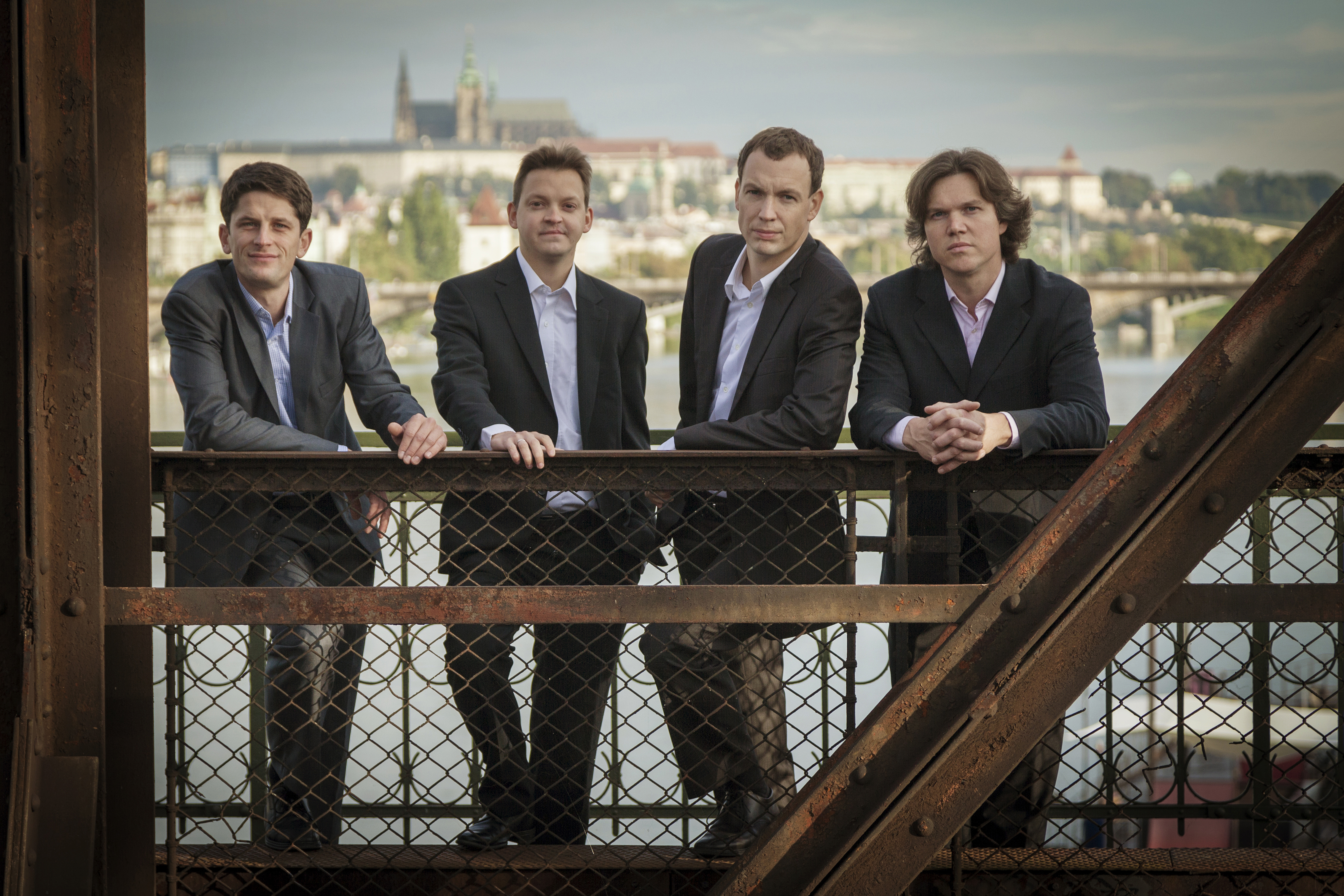
Bohuslav Martinů wrote his first string quartet in 1918 in Polička, but it smells of the far France. Martinů aptly dubbed it “French”, reflecting the character of the composition, which openly adheres to the quartet works of French Impressionists – Claude Debussy and Maurice Ravel. Soft harmonies refer to both Impressionism and the lyricism of Slavic music, in the second movement also to Antonín Dvořák.
Dvořák’s eleventh string quartet in C major will close the evening and is deliberately devoid of any “Slavonic” elements. Composition dating from the 1881 is built on Beethoven-Schubert template. The piece was commissioned by the Hellmesberger Quartet that premiered compositions both by Schubert and Brahms.
Béla Bartók wrote his String Quartet No. 4 in 1928. He decided to expand the number of movements in the new work to five. The last movement erupts in a wild dance with references to Hungarian, Slovak and Rumanian music. This reflects Bartók’s political opinions that caused considerable antagonism between him and the Horthy regime.
programme:
Bohuslav Martinů
String Quartet No.1, H 117
Béla Bartók
String Quartet No. 4
Antonín Dvořák
String Quartet No. 11, op. 61
| Bennewitzovo kvarteto | |
| Jakub Fišer | violin |
| Štěpán Ježek | violin |
| Jiří Pinkas | viola |
| Štěpán Doležal | violoncello |